Learning a language can be difficult, especially when people who speak the same language use different words depending on where they live. For example, in the case of the terms “got” or “gotten,” is “gotten” correct?
It is correct to say “gotten” because it is the past participle of “get,” which means “to receive.” However, while it is correct in American English, it is not standard in British English. In contrast, American English frequently uses “gotten” as part of the perfect tense and in various phrases.
The word “gotten” is widespread and useful in American English, so if you want to learn more about using this past participle correctly, keep reading!
Is It Grammatically Correct to Say “Gotten”?
It is grammatically correct to say “gotten” in American English as the past participle of “get.” The past participle typically expresses completed action, and we use it to form the active perfect tense (source).
Since “gotten” is the past participle, it is correct to use it with “have” or “has” to form the present perfect to describe an action that someone has completed.
What Does “Gotten” Mean?
Now that you understand that “gotten” is the past participle of “get,” it’s important to note that the verb “get” has multiple meanings. For instance, to “get” means to receive, but, in some instances, it can also mean “to become.” It can also mean being able or allowed to do something (source).
Let’s start with the basics. The most straightforward meaning of “gotten” is “to have or receive.” For example, you might say:
- I have gotten a call from the school.
In the above sentence, the speaker wants their audience to know that they have received a call. In other words, someone called them. Here is another example:
- He has gotten takeout every day this week.
In this sentence, the word “gotten” refers to the act of receiving a physical thing that he ordered. In this case, that thing is a package from the post office.
Sometimes you may use “gotten” to mean something that isn’t physical. Take the following sentence, for example:
- She seems to have gotten a cold.
Another way to say the above is “she caught a cold.”
“Gotten” can also mean “understood.” You might say:
- I had never gotten math until now.
This sentence would mean that you never understood math before, but now you do.
Using “Gotten” in a Full Sentence
Since “gotten” is a past participle, you can use it in the present and past perfect tenses. However, using the past participle requires the helping verbs “have” or “had.”
First, let’s look at how to use “gotten” in the present perfect tense. Consider the following example:
- John and Sarah have gotten everything from their baby registry.
The above sentence is in the present perfect tense, meaning that it shows something completed at some time before the present. You use the helping verb “has” or “have” with the past participle to show this verb tense. Here are some examples:
- I have gotten the same dish every time I go there.
- He makes sure his students have gotten the idea before moving to the next topic.
Similarly, you can combine the past participle with “had” to form the past perfect. The past perfect shows that something happened before another event in the past (source). Here’s an example to clarify:
- He had gotten his coat before he left for the day.
In this sentence, both actions — getting the coat and leaving — happened at some point in the past. The speaker expressed the act of getting the coat as the past perfect (“had gotten”) because it happened before the second action, leaving for the day.
In What Context Can You Use “Gotten”?
You can use “gotten” when you want to describe how someone has received or obtained something. Since “gotten” is the past participle, you can use it with “has” or “had” when you want to use the present or past perfect.
One way you might use “had gotten” is to provide background information. For example, if you are telling a story about your car, and you think it is relevant to mention you had only just bought the car that summer, you might say:
- I had gotten the car that summer.
The phrase “had gotten” tells your audience that you completed the act of acquiring the car at a point before the other events in your story.
When Can You Use “Gotten”?
Besides the meanings we’ve already discussed, you can also use the word “gotten” in a couple of expressions. Both involve the addition of prepositions: “into” and “along.”
First, you might use “gotten” in the phrase “gotten into.” This is an American phrase that you can use in several ways. First, it can mean “to enjoy something” (source). For example, you might say:
- I have really gotten into baseball lately.
The above example means that the speaker has begun to enjoy baseball quite a bit. However, this isn’t the only way you can use “gotten into,” however. It can also indicate the beginning of a conversation, like in the following example:
- We had gotten into a debate over which college was the best.
“Gotten into” is also an expression you can use when you believe someone acts out of character. For example, someone might state this in the following way:
- I don’t know what has gotten into you lately.
This is a common idiom to express confusion over someone’s behavior. You will notice that many of these expressions use a preposition such as “along” or “into.” Paying attention to the preposition will often help you understand how someone is using “gotten.”
When Not to Use “Gotten”?
When using British English, it is not appropriate to use “gotten.” Instead, you would use “got” where we have used “gotten” so far. Using “got” will sound more natural to those who speak British English.
The use of “gotten” instead of “got” works best in American contexts. For instance, in American English, you would say:
- He has gotten lost.
But in British English, you might say:
- He has got lost.
Both are correct, depending on where you would use them. Just remember that “gotten” is correct in American English but not for British English. So for British English, you should use “got” instead.
How Do You Use “Gotten”?
You can use “gotten” as a part of the present perfect tense. To do this, you will need to use “have,” “has,” or “had.” For example, you can use the phrase “have gotten” to describe something that happened at an unspecified time in the past (source).
As we said, “gotten” has a wide range of meanings. Therefore, there are many contexts where you could use “have gotten.” For example, you might want to describe a situation where you have received an email from someone. To do so, you could say:
- I have gotten an email from Sam.
You can use this phrase to describe receiving all sorts of things. This phrase can describe receiving or coming into possession of something. Here are some examples of how you might do that:
- I have gotten a new bike.
- She has gotten a cold.
- He has gotten the point.
Not all of the above examples are about physical objects. The second is about becoming sick, while the last describes understanding a concept or “point.” In each, someone has obtained something they did not have before: a bike, a virus, or an idea.
“Gotten” often functions as a transitive verb, meaning that it needs something to receive the action. In the case of “gotten,” the object is the thing that the subject has received or obtained (source).
Take the following sentence:
- Bob has gotten the check.
In this sentence, the check is the object. That is, the check is the thing being “gotten.” This is a typical way of using “gotten.” For example, if you were to say, “I have gotten,” your audience might respond with, “You have gotten what?” This is because “gotten” usually takes an object.
Using “Gotten” in “Gotten Along”
You can also use “gotten” in the phrase “have gotten along.” As we said before, there are at least a couple of different ways to use this phrase. The first is to describe how two or more people might relate to one another well.
Here’s an example of this use of “gotten along”:
- Sam and Jean have gotten along this time.
This example means that these two people, Sam and Jean, have maintained a good relationship, perhaps in contrast to other times they interacted.
You can use “gotten” as a part of the phrase “gotten along,” which can have at least a couple of different meanings. First, it can mean “to be cordial with,” as it does in this example:
- Ali and Evvy have gotten along well.
It can also mean “to manage,” as it does here:
- I have gotten along just fine without my phone today.
What Can You Use Instead of “Gotten”?
There are quite a few words that you might use instead of “gotten.” One such synonym is “received.” You can use it for any of the instances where “gotten” means “to come into possession of something” (source).
Take this sentence, for example:
- I have gotten a letter.
You could say instead:
- I have received a letter.
These two sentences mean the same thing. Other words you might use instead of “gotten” are “obtained,” “acquired,” or “gained.” These words are not perfect synonyms of “gotten,” so you will need to consult a dictionary to ensure they are the right word for the sentence.
As we have said, in British contexts, you will want to use “got” instead of “gotten.” Again, this will sound more natural to those accustomed to British English.
“Gotten” as a Part of Other Words
The word “gotten” is a part of some hyphenated words. These words are typically adjectives that describe how a person obtained a thing. These hyphenated words include “ill-gotten” and “self-gotten.”
For instance, you might say something is “ill-gotten” to describe a thing that someone achieved dishonestly (source).
- He hid his ill-gotten gains under the floorboards.
You might also want to say “self-gotten” to describe something that a person acquired by themselves (source). For example:
- He paid for this with his self-gotten fortune.
Both “ill-gotten” and “self-gotten” are adjectives describing how something came into a person’s possession, so they contain the word “gotten” in them.
Formal vs. Informal English
While “gotten” is correct, with formal situations, you should use “have” instead of “have gotten.” Most would consider using the phrase “have gotten” to mean “to have” as informal, so you should avoid it in professional or academic writing (source).
Both formal and informal language have their place. Formal English sounds more professional but less personable. Informal English sounds more casual, but we would not consider it appropriate for most business or academic communication (source).
Verb Tense and Participles
American English uses both “got” and “gotten.” While Americans use “gotten” for the past participle, they use “got” for the simple past tense. There are some important differences between past participles and the past tense.
The past participle can go with “have” or “had” to form the present and past perfect tenses. However, you would not use a participle by itself as a verb. For example, you would not say, “I gotten.” Instead, you need a helping verb to make the verb tense.
On the other hand, the past tense is a verb that shows that an action occurred in the past. If you say that you “got” something, you are describing a past action of receiving something. Also, unlike “gotten,” “got” does not need a helping verb — “I got it,” for example.
This article was written for strategiesforparents.com.
If you want to learn more about past participles and how they differ from the past tense, check out our article “Eaten or Ate: Past Tense vs. Past Participle.”
Final Thoughts
The word “gotten” is prevalent in American English, so it is essential to learn how to use it correctly. If you can use “gotten” correctly, you will be able to employ it in various contexts, whether describing how you received something or using it in idioms.
If you follow this article, you will not only know how to use “gotten,” but where. As we have said, while “gotten” is correct in America, British English speakers typically say “got” for the past participle. Knowing the difference will help you to use “gotten” correctly.
Languages are prone to evolve. Evolution of language occurs for any number of reasons, including geographical isolation of a group of speakers, natural change over time, and the need for new words to describe concepts that didn’t exist in the past.
In some cases, two different communities decide they want to speak different versions of a shared language simply to differentiate themselves from each other. By some accounts, part of the drive behind forming American and British forms of English was this exact reason. Americans wanted a distinctly American form of English, while the British have been more than happy to reinforce these differences to highlight their own linguistic superiority.
Thus, American and British writers often conjugate the verb get differently.
What is the Difference Between Got and Gotten?
In this post, I will compare got vs. gotten. I will use each of these words in at least one example sentence, so you can see how they appear in context.
Plus, I will show you a memory tool that can help you choose either got or gotten correctly in your own writing.
When to Use Got
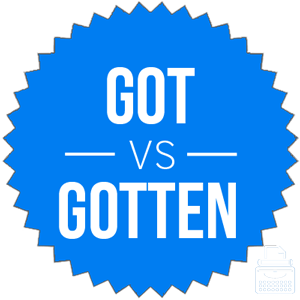
One might get coffee from a café, for instance. To get something could also mean to obtain understanding, as in the phrase I just don’t get math.
Conjugations of Got:
- I/we get: first person singular and plural present
- You get: second person singular and plural present
- He/she/it gets: third person singular present
- They get: third person plural present
- Getting: present participle
- Got: simple past
Got can also be the past participle of get.
For example,
- There has got to be a better way to solve this riddle.
- He’s finally gotten rid of his chicken pox!
When to Use Gotten
What does gotten mean? Gotten is another way to conjugate get as a past participle.
For example,
- I wouldn’t bring up Mark’s drugs use with Sheila, she’s gotten very angry when we tried to talk to her about it in the past.
Americans are more likely to use gotten than are the British, who are more likely to use got in this tense. The charts below show the relative usage of gotten vs. got within each language community.
American English:
British English:
While these charts aren’t exhaustive in their literary scope, they only look at books published in English since 1800, they still paint a clear picture of a long-term usage trend.
American English: Got vs. Gotten
As the above charts show, American writers are more likely to use the word gotten than their British counterparts. But this graph doesn’t show the full story of this word’s use, as there is a usage difference in American English between got and gotten.
As the Oxford English Dictionary notes,
- Gotten usually implies the process of obtaining something.
- Got implies the state of possession or ownership.
Let’s look at a few examples to illustrate this.
- He has gotten two tickets to the Super Bowl.
- He hasn’t got any money to go to the concert.
The first example is about acquiring tickets to the Super Bowl. The second example is a description of someone’s ability to pay for something.
Trick to Remember the Difference
Got is your only option for a simple past tense form of get. As a past participle, however, there is a slight difference in American English usage.
- Gotten is used when talking about the acquisition of something.
- Got is used when talking the state of ownership of something.
Since gotten is spelled with an N, like the word acquisition, you can remember that that word is used when talking about how something has been acquired..
Summary
Is it gotten or got? The verb get is conjugated as a past participle as either got or gotten.
- American writers differentiate a use for gotten got.
- The British prefer got.
Contents
- 1 What is the Difference Between Got and Gotten?
- 2 When to Use Got
- 3 When to Use Gotten
- 4 American English: Got vs. Gotten
- 5 Trick to Remember the Difference
- 6 Summary
From Sarah Woodbury’s website: Romance and Fantasy in Medieval Wales
On the use of the word ‘gotten’
Several UK readers have wondered about the use of the word ‘gotten’ in my medieval mysteries. Since the word is not in common usage in England right now, it seems odd to them to read it at all, and a glaring ‘Americanism’ in a book set in the medieval period. At first glance, this might appear to be yet another instance of ‘two countries separated by a common language,’ but as it turns out, the history of the word ‘gotten’ is a lot more interesting than that.
‘Gotten’ is, in fact, an ancient English word that was in use in England at the time America was colonized by the English. Over the centuries, the Americans kept on using it and the English did not.
Origin: 1150-1200(v.) Middle English geten < Old Norse geta to obtain, beget; cognate with Old English –gietan (> Middle English yeten), German-gessen, in vergessen to forget; (noun) Middle English: something gotten, offspring, derivative of the v.
The British author quotes from reference.dot.com, whose the page is now obsolete.
“British English discontinued the use of “have gotten” as a form of the past participle for “get” over 300 years ago. […]. It is now rarely used in the British version of the English language. American English continues to use “have gotten” to emphasis the action performed. In American English language “has got” implies possession. It is assumed that if “has got” is used that it is referencing what the person has in their possession. On the other hand, “has gotten” implies that the person acquired, received or obtained an item.”
In brief, gotten is a perfectly legitimate word with a long and glorious history.
Предложения со словом «gotten»
|
I had no idea where they had gotten this information, but they were shy and giggly even before I said anything. |
Я не представляю, откуда они узнали про случайные связи, но они смущённо хихикали, ожидая моего ответа. |
|
And before I had even gotten the whole sentence out, he had moved on to the soccer game he was going to play at recess. |
И не успела я закончить предложение, как он заговорил о том, как будет играть в футбол на перемене. |
|
And finally, one of the reasons why things have gotten so out of control is because so much of what happens with surveillance — the technology, the enabling rules and the policies that are either there or not there to protect us — are secret or classified. |
И, наконец, одна из причин, почему всё вышло из — под контроля, это то, что вещи, связанные со слежкой — технологии, политика и правила, дающие дополнительные полномочия, служащие то ли нам, то ли против нас — засекречены или конфиденциальны. |
|
And I realized that as the magazine had become known for its in-depth research and long reports, some of the humor had gotten lost along the way, because now often Eustace Tilley was seen as a haughty dandy, but in fact, in 1925, when Rea Irvin first drew this image, he did it as part of a humor magazine to amuse the youth of the era, which was the flappers of the roaring twenties. |
Я поняла, что, обретя известность своими глубокими исследованиями и длинными репортажами, журнал в процессе потерял часть своего юмора, потому что сейчас Юстаса Тилли часто рассматривают как высокомерного денди, но на самом деле в 1925 году, когда Ри Ирвин создавал этот рисунок впервые, он создавал его как часть юмористического журнала, чтобы позабавить молодёжь той эпохи, состоявшую из девушек — эмансипе «ревущих двадцатых». |
|
I was studying these corals for my PhD, and after days and days of diving on the same reef, I had gotten to know them as individuals. |
Я изучала кораллы для своей докторской, и после многих погружений на одном и том же рифе я узнавала каждый коралл. |
|
In a period of time of just three years, from 1785 to 1788, he had conceived, theorized, designed, passed and gotten ratified the US Constitution. |
Всего за 3 года, с 1785 по 1788 — й, он задумал, теоретизировал, создал, добился одобрения и ратифицировал Конституцию США. |
|
He had gotten an enormous degree of help in the final marketing phase of his constitutional project from a man you may have heard of, called Alexander Hamilton. |
Он получил огромную помощь на завершающей стадии маркетинга своего конституционного проекта от человека, о котором вы могли слышать, которого звали Александр Гамильтон. |
|
So my dad sat down with him with an Audubon book, paper, pencils and brads — for those of you who have gotten a little less young and remember brads — and he said to my brother. |
Поэтому отец усадил его со справочником по орнитологии, бумагой, карандашами и скрепками — для тех, кто уже не такой молодой и помнит скрепки, — и сказал моему брату. |
|
So what has this gotten us to? |
К чему же это нас приводит? |
|
In my own practice, I’ve gotten much more creative and flexible in supporting my patients in using drugs safely to manage their symptoms — with the emphasis on safely. |
В своей практике я стал более творческим и гибким, поддерживая пациентов при безопасном приёме лекарств для борьбы с симптомами — с акцентом на безопасности. |
|
And having done that and gotten that so wrong, I decided to spend the ensuing year just out in Trumpworld, and I found a lot of economic dislocation. |
После того, что я так здорово промахнулся, я решил, что весь год проведу в кулуарах его кампании, и обнаружил множество экономических неурядиц. |
|
Had Hillary Clinton gotten up and given that speech, not one Republican would have stood up to applaud. |
Поднимись Хилари Клинтон с этой же речью, ни один республиканец не поддержал бы её. |
|
His popularity among Republicans — he’s got 85 percent approval, which is higher than Reagan had at this time, and that’s because society has just gotten more polarized. |
Он популярен среди республиканцев, за него проголосовало 85 % — это больше, чем за Рейгана в своё время, а причиной всему — усиление поляризации. |
|
Mothers have gotten the message and the vast majority of mothers intend to breastfeed, but many do not reach their breastfeeding goals. |
Мамы понимают, насколько это важно, и подавляющее большинство намерены кормить грудью, но не всем это удаётся. |
|
I’ve gotten feedback such as, smells like flowers, like chicken, like cornflakes, like beef carnitas. |
Мне отвечали таким образом: пахнет как цветы, как курица, как кукурузные хлопья, как карнитас из говядины. |
|
How many of you have ever gotten a parking ticket in your life? |
Кого из вас когда — либо штрафовали за нарушение парковки? |
|
It’s arguably gotten worse. |
Она, вероятно, стала хуже. |
|
And he’d gotten used to it. |
И он привык к этому. |
|
I had just gotten engaged to marry the love of my life. |
Я собиралась замуж за любовь всей моей жизни. |
|
How could my doctor have gotten it so wrong? |
Как мог мой врач так ошибаться? |
|
I don’t know what would have happened had I not been one of the lucky ones, had I gotten sick before the internet, had I not found my community. |
Я не знаю, что было бы, если бы не моя удача, если бы я не родилась в эпоху интернета, если бы не нашла тех людей. |
|
And it was late, it was nearly midnight, we’d gotten into an argument over dinner, and when we got back to our room, he threw his things in the bag and stormed out. |
Было поздно, почти полночь, мы поругались за ужином и когда вернулись в номер, он собрал свои вещи и хлопнул дверью. |
|
But if you started with something smaller, it’s possible that enough gas would have gotten away that it would have significantly impacted it and left you with something very different than what you started with. |
Но в случае с объектом меньшего размера, есть вероятность, что с него испарится достаточно газа, и это настолько изменит его, что получившийся объект будет значительно отличаться от изначального. |
|
So I went back, and we reanalyzed it based on whether or not they had gotten that one injection of Calypsol a week beforehand. |
Поэтому мы снова проанализировали данные на основе того, получили ли мыши инъекцию Калипсола неделей раньше. |
|
Yet the mice that had gotten that one injection of Calypsol, here on your right, they were exploring, they were social. |
А мыши, получившие инъекцию Калипсола, справа от вас, оставались любопытными и общительными. |
|
It turned out he hadn’t gotten it all, and she wasn’t good to go. |
Оказалось, что он разделался не со всем, и спокойно уходить ей было рано. |
|
I said, Most likely I’ve gotten it all and you’re most likely good to go, but this is the experiment that we’re doing. |
Я сказал: Наиболее вероятно, я всё удалил, и вы, скорее всего, можете идти, но это наш совместный эксперимент. |
|
Deah had just gotten off the bus from class, Razan was visiting for dinner, already at home with Yusor. |
Диа только приехал домой с занятий, Юсур была дома и Разан зашла в гости на ужин. |
|
But of course we probably can’t vote there, but one thing we can get from Iceland and have always gotten is inspiration. |
Конечно, мы не можем голосовать там, но что мы можем получить и всегда получали от Исландии, так это вдохновение. |
|
But somewhere along the line I’d learned about nuclear weapons, and I’d gotten really concerned with the ethics of science. |
Но в какой — то момент я узнала о существовании ядерного оружия и всерьёз задумалась о научной этике. |
|
Vasco and Quinn must have gotten my stage directions. |
Васко и Куинн обратили внимание на разыгранную мной сцену. |
|
The Talking Stars People had gotten most of the mules. |
Говорящие со Звездами увели у них почти всех мулов. |
|
How had this thing gotten into his supposedly impregnable castle? |
Как эта штука проникла в замок, считающийся неприступным? |
|
Oh, I’ve won several competitions, I’ve gotten second place. |
Я победил в нескольких конкурсах, занял второе место. |
|
Well, probably any warfare technology, I think we’ve gotten a little over our heads with regard to weapons and some of the privacy issues I think. |
Ну, наверное, любую военную технологию, я думаю, мы получили выше крыши (наших голов) что касается оружия и некоторые предметы частной жизни, наверно. |
|
We’ve never gotten prints off a cartridge that small. |
Мы никогда не получали отпечатков с таких маленьких гильз. |
|
I’d say I have gotten along with my subordinates. |
Я бы сказал, что я лажу со своими подчиненными. |
|
But we haven’t even gotten to the cheese course. |
Но мы же ещё даже не перешли к сырному блюду. |
|
But the plan had only gotten as far as installation. |
Но пока план дошел только до стадии установки оборудования. |
|
They’d gotten mixed up about the bus schedule somehow. |
Они что — то там напутали с расписанием автобусов. |
|
Not unless his luck had suddenly gotten a lot better. |
Если вдруг его судьба не сделала резкий поворот к лучшему. |
|
After several minutes of this it became evident that they had gotten away. |
Спустя несколько минут стало ясно, что Энн удалось оторваться от погони. |
|
A famous actress had just gotten engaged to a not-so-famous young novelist. |
Объявили о помолвке известной актрисы с пока не таким известным молодым писателем. |
|
The word had not gotten out by the last deadline and now the paper had a front-page story about a murder that was written by the murderer. |
Так свежий номер вышел со статьей об убийстве, написанной самим убийцей. |
|
She and her sisters had conquered the language at her father’s nagging insistence, and she was thankful he’d gotten his way. |
Отец заставлял всех дочерей учить этот язык, и сейчас Бренна была очень благодарна ему. |
|
She had gotten blood on her fingers, he saw, but it didn’t seem to bother her. |
Он заметил у нее на пальцах кровь, но Илэйн это, видимо, нисколько не волновало. |
|
They appeared to have gotten lost in the maze of the Palace, but had perished of wounds suffered earlier. |
Похоже, они заблудились в лабиринте дворцовых коридоров, но умерли от ран, полученных еще до этого. |
|
My own younger brother Josh had never been sullen, but I’d always gotten along with him. |
Мой братец Джош никогда не бывал так угрюм, но с ним я всегда умела ладить. |
|
But I doubt that you’ll be providing the poor with any of these ill-gotten gains. |
Но я сомневаюсь, что вы отдадите бедным весь этот нелегально полученный доход. |
|
The mercury was gotten from the natives, who had large supplies picked up from the island after the showers that came with the black comets. |
Ртуть добыли у туземцев, в больших количествах собиравших ее во время ливней, приносимых черными кометами. |
|
This is a song that I wrote about two people that I have gotten to know recently. |
Эту песню я сочинила о двух людях, с которыми я недавно познакомилась. |
|
At least the Peeps had gotten into a range where they could theoretically have fired back. |
По крайней мере, хевы подошли на дистанцию, с которой теоретически могли открыть ответный огонь. |
|
It always saddens me that you and Sheldon have never gotten along. |
Меня всегда огорчает то, что вы с Шелдоном никогда не ладили. |
|
By the time Adam had bedded down his horse and gotten a cool drink in the kitchen, it was well after midnight. |
Адам устроил на ночлег своего коня и пошел на кухню, Чтобы выпить чего — нибудь холодного. |
|
He had refused Healing the night before, when Moiraine wakened him after he had finally gotten to sleep. |
Прошлой ночью Морейн разбудила его, едва он заснул, но Мэт отказался от Исцеления. |
|
I was afraid a pack of wild animals had gotten to you, considering your no-shows last night. |
Я боялась, что на вас напала стая диких животных, и поэтому вы не пришли вчера. |
|
These meaningful glances have gotten me on the edge of my seat. |
Эти многозначительные взгляды заставили меня подвинуться на самый край дивана. |
|
Then they could have gotten in through the water gate. |
В таком случае они смогли бы регулировать поток при помощи шлюза. |
|
He’d gotten rid of the bones in his hair; his long white braids hung smoothly over his back. |
Он уже избавился от костей в волосах, и длинные белые косички ровно висели вдоль спины. |
|
They’ll have gotten the go-ahead to hunt you, set up a perimeter around your last known location. |
Они дадут команду начать на тебя охоту, оцепить последнее из известных им мест твоего нахождения. |
In American and Canadian English, the past participle of the verb get is usually gotten. For example, we might say, “I have gotten behind on my work,” or, “The book was not gotten easily.” Got is the participle in some uses, though, such as where has got to or have got to means must (e.g., “We have got to go to the store.”) and where has got or have got means has or have (e.g., “I have got five sisters.”)
In the main varieties of English from outside North America, the past participle of get in all its senses is usually got. Gotten appears occasionally, and it is standard in a few set phrases such as ill-gotten gains, but the shorter form prevails by a large margin.
That gotten is primarily used in North America has given rise to the mistaken belief that it is American in origin and hence new and inferior. But gotten is in fact an old form, predating the United States and Canada by several centuries. It fell out of favor in British English by the 18th century, but it was eventually picked up again on the other side of the Atlantic, perhaps by analogy with forgotten.
The vehemence of some Britons’ scorn for gotten likely has to do with the fact that it has gained ground in British English over the last couple of decades. Many English speakers from outside North America resist the encroachment of so-called Americanisms (many of which, like gotten, are not actually American in origin) on their versions of English, and, for mysterious reasons, some feel especially strongly about gotten.
Examples
In the U.S. and Canada, gotten is the past participle of get in most of its senses, as in these examples:
Values have gotten a bad rap because of how they are discussed in politics and as they relate to religious beliefs. [Seattle Post-Intelligencer]
I’ve long gotten a thrill from the rawness and messiness of our local politics. [National Post]
But got is the past participle for some senses of get—for example:
The Republican Party has got to change. [Allentown Morning Call]
Whoever the Bombers hire, they want to do it quickly because they’ve got so many other critical decisions to make. [Winnipeg Free Press]
Outside the U.S., got, as used in these examples, is the preferred past participle of get in all its senses:
He has got out 25 times to left-arm slow bowlers in his Test career. [Telegraph]
Australia hasn’t got talent any more. [Sydney Morning Herald]
I have never been particularly houseproud or tidy, but things seem to have got out of hand. [letter to Guardian]
Asked by: Aiyana Bode
Score: 4.7/5
(56 votes)
to make greater; enlarge; increase.
Is Greaten a scrabble word?
Yes, greaten is in the scrabble dictionary.
Is there a word called goed?
good [interjection] an expression of approval, gladness etc.
Is Scabbarded a word?
Scabbarded meaning
A scabbarded sword. Simple past tense and past participle of scabbard.
Is Determ a word?
No, determ is not in the scrabble dictionary.
42 related questions found
What do you call someone who is very determined?
tenacious, stubborn, dogged, steadfast, resolute, strong-willed, purposeful, serious, decisive, single-minded, resolved, firm, set, pat, bent, persevering, decided, obstinate, fixed, settled.
What is the verb of determined?
verb (used with object), de·ter·mined, de·ter·min·ing. to conclude or ascertain, as after reasoning, observation, etc. to settle or decide (a dispute, question, etc.) by an authoritative or conclusive decision. to cause, affect, or control; fix or decide causally: Demand for a product usually determines supply.
What does Sarangi mean in English?
: a stringed musical instrument of India that is played with a bow and that has a tone similar to that of the viola.
What is a saya?
: an ankle-length outer skirt tied at the waist that is worn by women in the Philippines and Spanish America.
What does Scabber mean?
: a sheath for a sword, dagger, or bayonet. Other Words from scabbard Example Sentences Learn More About scabbard.
What does goed stand for?
Acronym. Definition. GOED. Governor’s Office of Economic Development.
How do you say goed in Dutch?
Pronunciation
- IPA: /ɣut/
- audio (Belgium) (file)
- audio (Netherlands) (file)
- Hyphenation: goed.
- Rhymes: -ut.
What goed means?
goed. all right; belongings; benign; effects; estate; fabric; fair; fairly; good; goods; merchandise; proper; property; rich; stuff; thing; things; well.
Is Saya an Indian name?
Saya is baby girl name mainly popular in Hindu religion and its main origin is Hindi. Saya name meanings is Shelter, Shade, Influence, Evening, Close of day.
What is Saya knife?
Sayas are wooden sheaves that hold the blade of your knife and protect its edge from damage and from damaging you. Sayas are the more traditional way of storing a knife in Japan, if you ever have to move your knives then they offer great protection. …
How is a Saya made?
Creating a saya is begun by selecting an appropriate block of wood, sawing or splitting it into halves, and carving out each half to guide the blade smoothly. Carving is done with purpose designed chisels called saya-nomi (鞘鑿).
What is the meaning Saranghamnida?
Formal “I Love You” in Korean
This phrase is the formal version of I love you in Korean and should be used with people who you do not know, or when talking to a large group. Listen Here: 사랑합니다 (saranghamnida)
What does Salanghae mean?
salanghae=사랑해. It means ‘I love you‘.
What is the noun and verb of determined?
noun. noun. /dɪˌtərməˈneɪʃn/ 1[uncountable] the quality that makes you continue trying to do something even when this is difficult fierce/grim/dogged determination He fought the illness with courage and determination.
What is an adjective for determined?
determined. Decided; resolute, possessing much determination.
What is the noun of determined?
determination. The act of determining, or the state of being determined. Bringing to an end; termination; limit. Direction or tendency to a certain end; impulsion.
Is determined a positive word?
Determined… assertive… confident. Each of these labels carries a positive connotation; they indicate a “go-getter.” However, once someone slips from confident to egotistical, they’re no longer an inspiration to be around.
What do call a person who never gives up?
A. Tenacious is a mostly positive term. If someone calls you tenacious you’re probably the kind of person who never gives up and never stops trying – someone who does whatever is required to accomplish a goal.
What do you call someone who always wants to win?
Ambitious describes an eagerness to succeed and also implies that success has not yet been attained.
A. Choose the correct word.
1. The …… from that chemical are highly toxic.
A fog B fumes C flames
2. The match was called ….. because of the weather.
A off B for C out
3. Dinosaurs have been …… for millions of years.
A inactive B disappeared Cextinct
4. He wants to go home, he’s feeling under the…….
A clouds B climate C weather
5. The Captain and …… welcome you aboard.
A team B crew C staff
B. Fill in the correct preposition.
6. The terrible fire left dozens of buildings…… ruins.
7. She’s very competitive …… nature.
8. The forest was …… flames.
9. The patient is now……of danger.
10. Where ….. earth are my keys?
C. Fill in the missing word. There is one word you do not need to use: collapsed, survivors, habitats,
famine, avalanche, waves, injured, homeless, flood, earthquake, rescue.
11. Animals’……..are being destroyed.
12. We keep searching for …….
13. When the …… hit the area, dozens of people were snowed in for many hours.
14. A terrible …… was caused by continuous rain.
15. The massive …… have killed 1500 people.
16. Thousands of people were left…..
17. The apartment ….like a house of cards,
18. ……. teams tried to save as many people as possible.
19. Doctors were helping …… people,
20. A(n) …… in the ocean can generate a tsunami.
D. Choose the correct item.
21. Tim will never forget meeting/to meet Jenny for the first time.
22. You must take/taking your keys with you.
23. Dan avoids buying/to buy anything that cannot be recycled later.
24. The children look forward to get/getting a dog.
25. He decided to join/joining an environmental organization.
26. People should buy/to buy products with biodegradable packaging.
27. I didn’t use to wear/wearing glasses.
28. Fay and her family are happy to sponsor/sponsoring a child in Ecuador.
29. They won’t let her to go go to the party.
30. I’m writing to tell/telling you about my trip.
E. Complete the sentences with the words derived from the words in bold.
31. A local businessman made a generous …..to the hurricane victims. DONATE
32. The …….of ship has never been explained. DISAPPEAR
33. He has a …….of stamps. COLLECT
34. I like the ……of living close to work. CONVENIENT
F. Fill in the blanks with used to be used to, get used to and the appropriate form of the verbs in brackets
35. Sheila …….(drive) to work, but now she takes the bus.
36. Mr Roberts is a primary school teacher, so he …..(work) with young children.
37. She isn’t too comfortable with the idea of car-pooling yet, but I’m sure she…..(share) a car with other
people.
Подтянуть английский язык помогает чтение в оригинале: так можно и словарный запас пополнить, и грамматику отработать. Однако часто возникает ситуация, когда все слова вроде и знакомы, но они как будто случайно оказались вместе. Вместе с руководителем онлайн-школы английского языка Wordika Вероникой Генераловой мы нашли самые необычные английские идиомы и разобрались, что они означают.
To be under the weather — Неважно себя чувствовать
Буквальный перевод: «быть под погодой».
Есть несколько версий происхождения выражения, но все они связаны с морем. В основе первой — особенности ведения бортового журнала: в нем капитан судна ежедневно отмечал погодные условия и состав команды корабля. Тех, кто не мог нести службу, записывали в специальную колонку. Во время шторма туда попадали и многочисленные страдальцы, сломленные морской болезнью. В ненастные дни эта секция часто переполнялась, поэтому моряков приходилось записывать в соседнюю колонку, в графу «Погода» (weather), то есть «under the weather».
Вторая версия связана с местом размещения больных моряков: во время качки всех, кому становилось плохо, отправляли «under the deck and away from the weather», то есть «под палубу, подальше от непогоды». Со временем из этой фразы выпали «палуба» и «подальше» — так появился современный вариант идиомы.

How did you know I was feeling so under the weather this evening? / Как ты узнал, что мне так нехорошо этим вечером?
Pot calling the kettle black — Кто бы говорил
Буквальный перевод: «горшок зовет котел черным (а сам не белее)».
Много лет назад люди готовили на открытом огне в чугунных горшках и медных котлах, после чего на них оставалась черная сажа. Медные котлы очищали и полировали после каждой готовки до блеска настолько, что стоящий рядом горшок отражался в нем, как в зеркале. Так и появилась идея о том, что горшок обвиняет чистый котел в нечистоплотности, хотя на самом деле именно он весь в саже.
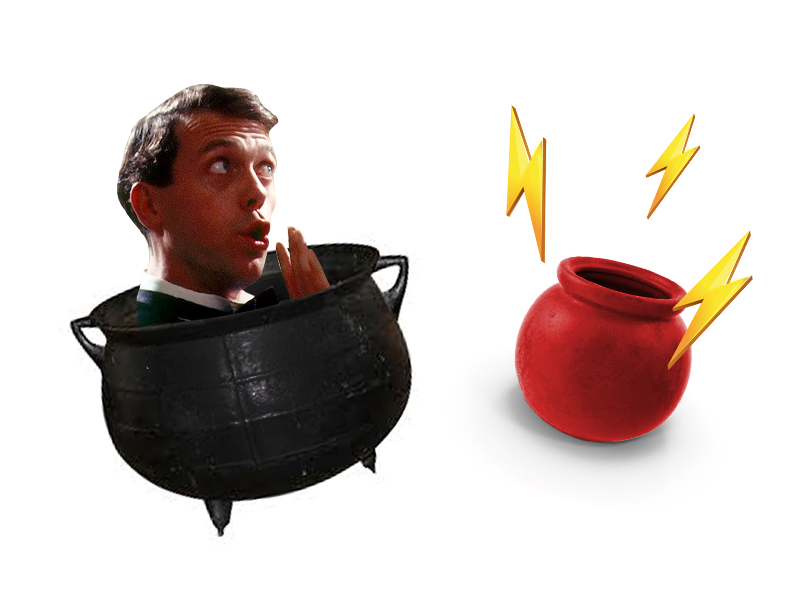
Both game developers accuse each other for ripping their narratives: it’s like the pot calling the kettle black. / Оба разработчика игр обвиняют друг друга в плагиате сюжета, хотя чья бы корова мычала.
A hot potato — Щекотливый вопрос
Буквальный перевод: «горячая картошка».
Это выражение известно с середины XIX века и связано с другим фразеологизмом — «to drop like a hot potato» (стремительно от чего-либо избавиться). Ассоциация возникла на фоне того, как быстро из рук выскальзывает горячая картошка. Так словосочетание «hot potato» стало самостоятельно обозначать что-то не самое приятное, с чем хочется поскорее расправиться.
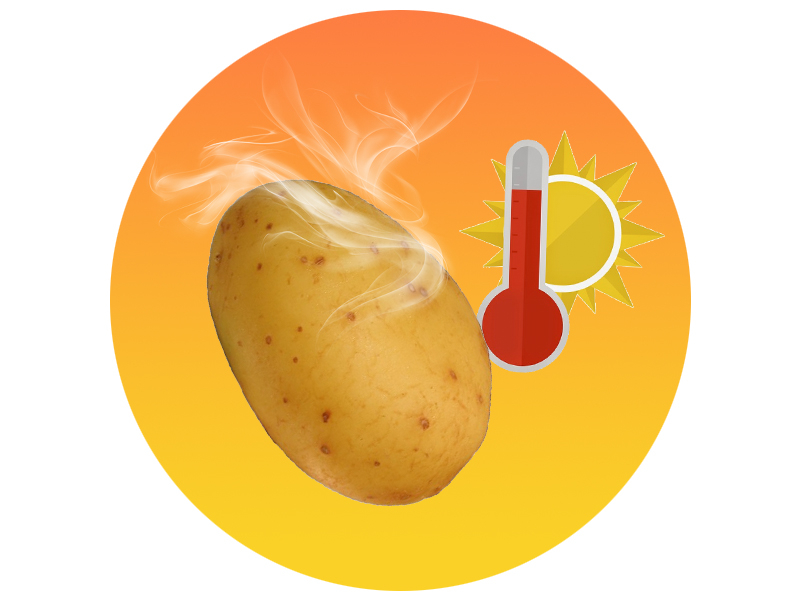
How will this crisis affect cinema production is a hot potato. / Как кризис повлияет на производство кино — щекотливый вопрос.
Cat got your tongue? — Язык проглотил?
Буквальный перевод: «кошка схватила тебя за язык?».
Изначально выражение звучало так: «Has the cat got your tongue?», позже его сократили до «Сat got your tongue». Точное происхождение выражения неизвестно, но есть несколько предположений.
Так, согласно первой версии, выражение пошло от плетки для наказания заключенных, которая по-английски называется «cat o’ nine tails» (буквально это можно перевести как «девятихвостая кошка»). Страх наказания этой плетью заставлял британских преступников держать язык за зубами.
Вторая версия отсылает к средневековой боязни ведьм и их верных спутников — черных котов. Поэтому, когда человек терял дар речи от удивления или шока, такую ситуацию сравнивали с проклятием, которое наложила чародейка явно не без помощи своего кота.

You could be more enthusiastic about the launch! Cat got your tongue? / Мог бы и порадоваться запуску проекта! Ты что, язык проглотил?
Neck of the woods — Трущобы, глушь
Буквальный перевод: «лесная шея».
Эта фраза характерна для американского английского. Впервые она появилась во времена колонистов, но варианты происхождения разнятся. По одной из версий, жители Нового Света старались максимально отстраниться от английских корней и использовали другие слова для обозначения привычных вещей: изначально «шеей» (а вернее, перешейком) называли узкий участок земли, окруженный с двух сторон водой. Американцы начали называть шеей еще и неширокую часть леса или пастбища, а позже и поселение, расположенное в такой местности.
Вторая версия связана с языком коренных американцев алгонкинов: их слово «naiack» означало «место» или «угол». Поселенцы могли перенять это выражение, но со временем его написание и произношение сблизилось с привычным англоязычным жителям Нового Света «neck».

Welcome to my neck of the woods. / Добро пожаловать в мою трущобу.
To go pear-shaped — Пойти наперекосяк
Буквальный перевод: «приобрести форму груши».
Одни лингвисты считают, что это выражение придумали пилоты Королевских военно-воздушных сил Великобритании в 1940-х годах: круги в воздухе — достаточно сложная фигура, поэтому часто вместо окружности у пилотов получалась груша. Другие полагают, что фразеологизм отсылает к Первой мировой войне: запуск воздушных шаров, использовавшихся в то время для наблюдения, шел наперекосяк, когда, надуваясь, они приобретали форму груши.
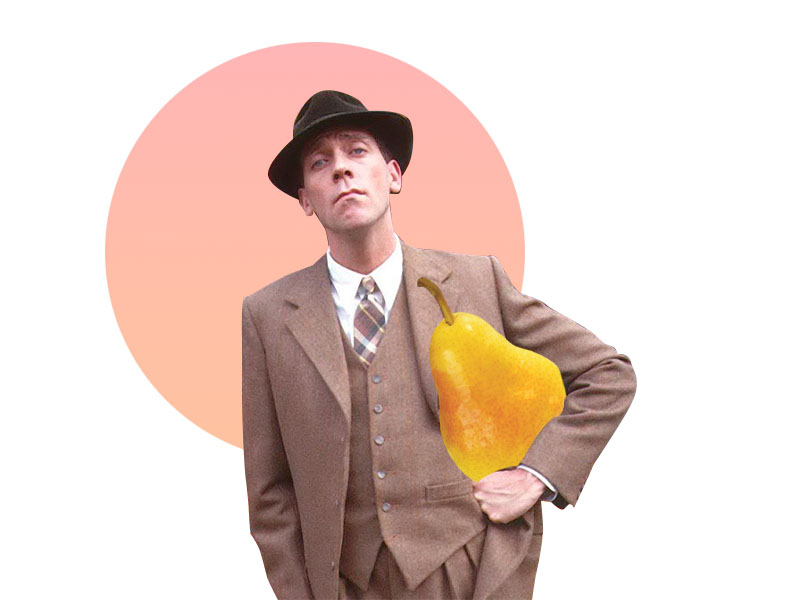
And when the main cast left, everything with the show went pear-shaped. / А когда основной актерский состав ушел, все в сериале пошло наперекосяк.
Blue in the face — До изнеможения
Буквальный перевод: «синее лицо».
Это выражение часто используется в описании разговоров и дискуссий. Фраза отсылает к ситуации, когда у непрерывно вещающего человека просто заканчивался воздух в легких и его лицо приобретало характерный синий оттенок.
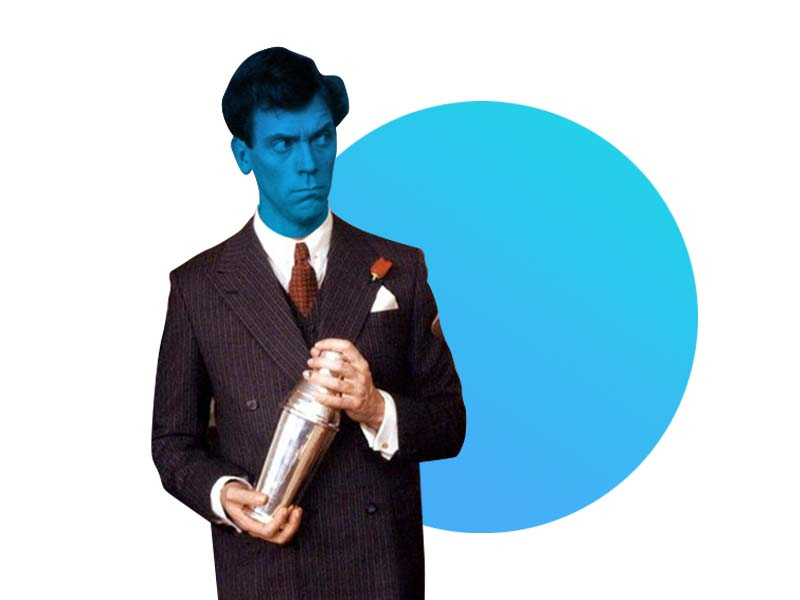
She can talk about the history of feminism till she is blue in the face. / Она может говорить об истории феминизма до посинения.
Thick as thieves — Закадычные друзья
Буквальный перевод: «толстые, как воры».
Идиома появилась в начале XIX века и действительно имеет криминальное прошлое. В то время воры работали в бандах, и успех их планов зависел от уровня доверия внутри группировки, поэтому преступники знали друг о друге абсолютно все. Слово «thick» («толстый»), в данном случае означало «очень близкий», «тесно связанный». Изначально говорили «thick as two thieves», но позже числительное выпало, и получилось сегодняшнее выражение, которое означает близких друзей.
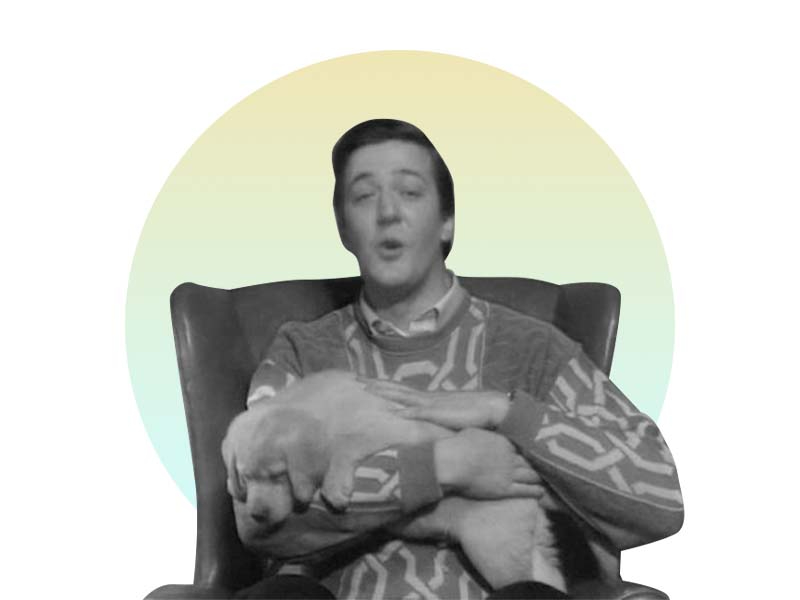
Hopper definitely knows Joyce’s whereabouts but he wouldn’t tell us anything — they are as thick as thieves. / Хоппер точно знает, где находится Джойс, но ничего не скажет: они закадычные друзья.
Wouldn’t touch it with a barge pole — Не приблизился бы и на километр
Буквальный перевод: «не стал бы трогать и баржевой палкой».
В XIX веке, когда многие баржи еще не могли плыть самостоятельно, люди использовали для их передвижения специальные толстые и длинные (около 3 м) палки или сучья. Они позволяли безбоязненно исследовать незнакомый или не очень презентабельный предмет, попадавшийся на пути следования, поэтому выражение стали использовать для обозначения чего-то особенно неприятного или опасного.
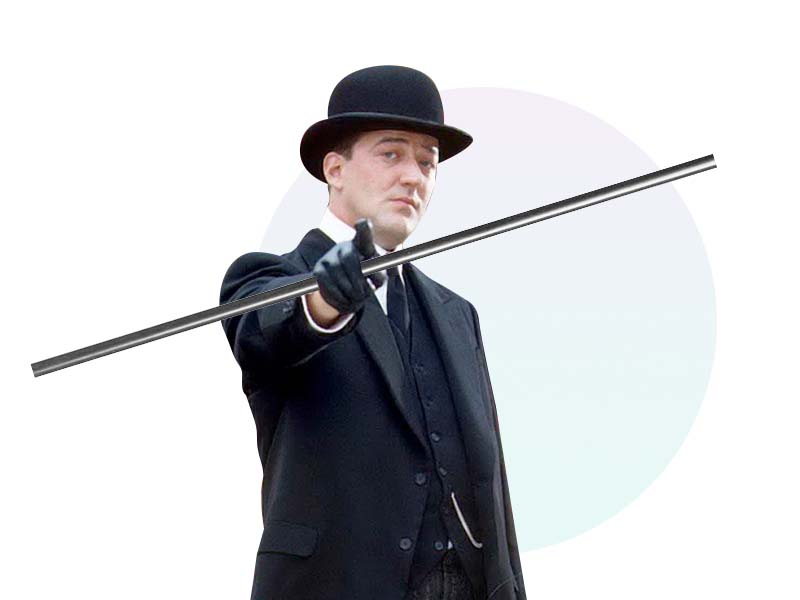
They don’t want any bad publicity, so they wouldn’t touch this influencer with a barge pole. / Им не нужны проблемы с репутацией, так что они и на километр не подойдут к этому блогеру.
Heart in one’s mouth — Сердце в пятки ушло
Буквальный перевод: «сердце во рту».
Считается, что впервые это выражение использовал Гомер в «Илиаде», чтобы передать чувство невероятного нервного напряжения. Древнегреческий поэт обратил внимание на ощущение, которое возникает в моменты страха и волнения: сердце бьется так часто, что вибрация начинает чувствоваться в горле.

When they told me my flight has been postponed, I had my heart in mouth. / Когда мне сказали, что мой рейс отложен, у меня сердце в пятки ушло.
Go bananas — Слететь с катушек
Буквальный перевод: «стать бананом».
Группа Little Big тут ни при чем. Историки и лингвисты полагают, что постарались студенты американских колледжей и обезьяны. Изначально существовал фразеологизм «go ape», который тоже означал сумасшествие и отсылал к образу обезьяны. Устойчивая ассоциация животных с их любимым лакомством в глазах американских студентов стала причиной изменения фразы.
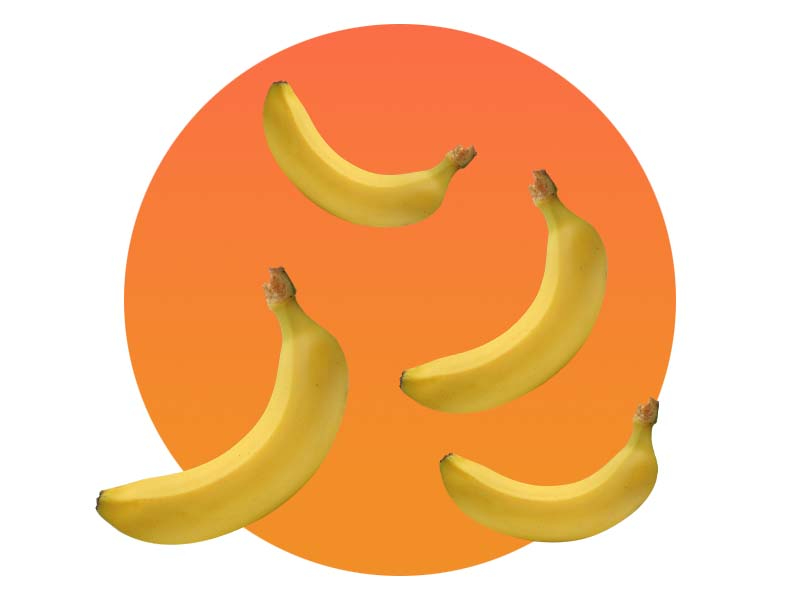
Everybody went bananas when all the fitness clubs in the city opened again. / Все просто с катушек слетели, когда снова открылись все фитнес-клубы города.
Cool as a cucumber — Спокоен как удав
Буквальный перевод: «холодный, как огурец».
Даже в жару огурец обычно на несколько градусов холоднее воздуха — так и появилось сравнение хладнокровного человека, спокойного при любой ситуации, с плодом травянистого растения семейства тыквенных.
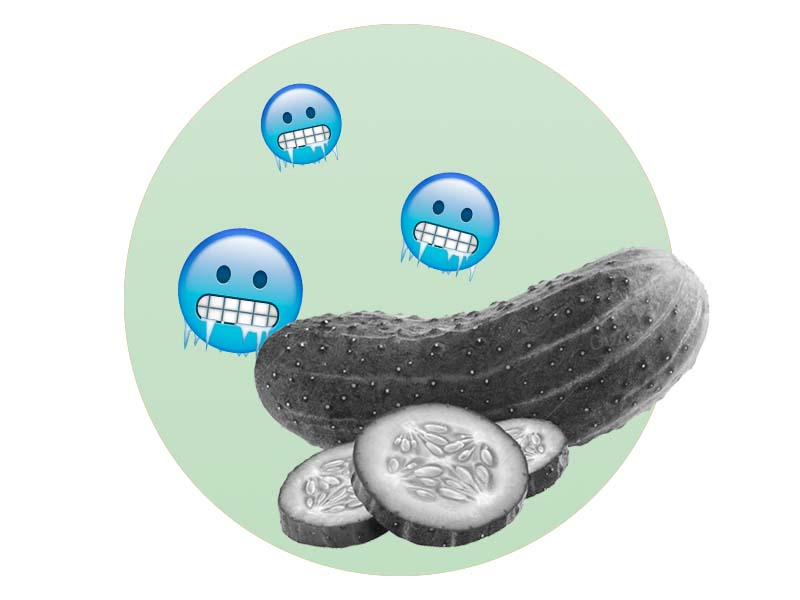
The passengers worried about possible speeding ticket, yet Victor was as cool as a cucumber. / Пассажиры переживали из-за возможного штрафа за превышение скорости, а Виктор все равно был спокоен как удав.
Опишите свое состояние одним словом. Игра «РБК Стиль».
Question
Updated on
22 Jul 2021
-
Arabic
-
English (US)
-
Korean
Question about English (US)
Is there a word called «rewatched»?
Is there a word called «rewatched»?
-
Is there a word which is opposite to «lately» ?
answer
Good question. I can’t think of any single words that mean the opposite of ‘lately’, but ‘a while ago’ is a phrase that means the opposite.
-
Does the word «natively» exist?
answer
I agree with @James_Evans , I understand but it does not sound like something I would say.
You could say «he is a patriotic American by bir…
-
Is the word «missaw» correct ?
answer
It is a very uncommon word and is not in most English dictionaries. That said, it is quite old. Here is a page with more information: https:/…
-
Is «meh» a word?
answer
No, not a formal word you can use in papers. It’s sort of like what «咳“ would be considered. Just an expression
-
Is there another word for «messed up»?
answer
screwed up
fucked up (If the situation makes it okay for you to swear)
-
Is «speaking of»=»refer to»?
answer
No.
“Speaking of” is used when someone introduces a topic that they OR another person was previously talking about.Example:
A: I can’t wai… -
is there an idiom with the word «astir»?
answer
@jorge51020286 Not that I am aware of but to be honest i have never heard anyone use that word in a conversation 😅. It sounds like something …
-
Is «surviving» an adjective? or a noun?
answer
It could be either depending on context. Of course, “to survive” is a verb, but verbs can be used as nouns (gerunds) and verbs can be used as…
- What does «not very beautiful» means? Is it «beautiful but not great» or «so-so» or «ugly»?
-
Is this sentencecorrect?
There were not enough chairs for all of them to sit on them.
- Is there any similarities between Spanish and Japanese? Some people in internet saying that there…
-
“What do you call an interracial relationship?”
…..happy.
What’s the catch here??
-
what is correct?
Where are you study?
Or
Where do you study?Thank you.
- How to respond to «I hope you are doing well»?
-
Choose the correct answer :
Despite a reputation for——output, he had the —-to take credit f… -
If you are not the correct person, please direct me the correct one.
Does this sentence sound nat…
-
Which of these sound natural?
1. This type of job is easy to find.
2. This type of job is easy to… -
Why is this not correct?
It’s very large for me to wear.
My textbook says it should be «It’…
-
I don’t need gas anymore.
Please see cashier.
https://www.facebook.com/100064511147275/posts/pf…
- Can I use “be better able to do something” if I compare my own skills of doing two different thin…
- Do Americans often use a phrase «hit the hay»?
- «We will return to this afternoon’s sports program, GOLF PLUS, after this emergency weather warni…
-
«I never forget my ex-girlfriend no matter what I’m in the midle of doing.»
Hi, is the sentence …
-
I’m sorry to ask you at the last minute.
▶️ Is it correct to say?
-
Does my answer sound natural?
Q: Do you think parents should have access to their kids’ social…
-
«I’m pushed for time.»
https://www.instagram.com/reel/Cq_Md-FPkOm/?utm_source=ig_web_copy_link
…
Previous question/ Next question
-
las oraciones tienen sentido?
Mi proyecto es en desarrollo.
Después yo veo eso.
Yo no conozco ni… - What is the difference between Ça prendra cinq années pour me devenir une ingénieure. and Il me …
What’s this symbol?
The Language Level symbol shows a user’s proficiency in the languages they’re interested in. Setting your Language Level helps other users provide you with answers that aren’t too complex or too simple.
-
Has difficulty understanding even short answers in this language.
-
Can ask simple questions and can understand simple answers.
-
Can ask all types of general questions and can understand longer answers.
-
Can understand long, complex answers.
Sign up for premium, and you can play other user’s audio/video answers.
What are gifts?
Show your appreciation in a way that likes and stamps can’t.
By sending a gift to someone, they will be more likely to answer your questions again!

If you post a question after sending a gift to someone, your question will be displayed in a special section on that person’s feed.

Tired of searching? HiNative can help you find that answer you’re looking for.
1.1
Vocabulary
1.1.1
Develop the activities proposed in Tell me more for this section. Go to
http://www.tellmemorecampus.com/
1.1.2 Open
your Market Leader book on page 37 and develop exercises A to D on travel
details (use tracks 1.55-1.58 in your CD to develop these exercises).
A.
CD.55-1.58 Listen to each part of the recording. Then answer these questions.
Part 1
1 What time
is the next train to Manchester?
The next train to Manchester is at
14:40
Part 2
2 Which
Flight is boarding at gate 32?
Flight JA327
Part 3
3 What time
does the train leave?
It’s 14:16
4 Which
platform does it leave from?
It’s from platform 5
Part 4
5 The
passenger chooses a flight. What time does it leave?
There is flight at 9.30
6 When does
the flight arrive?
From Terminal 5
It’s arrive at 11.45
7 What is
the flight number?
Flight BA341
8 Which
terminal does it leave from?
B. People
often do these things when they travel. Match the verbs (1-5, 6-10) with the
correct phrases (a-e, f-j).
1 buy a) security 6 watch f)
a hotel room
2 confirm b) a ticket 7 take g) some
Shopping
3 collect c) at the
check-in 8 book h) at the hotel
4 go
through d) their
flight 9 do i) an
in-flight movie
5 queue e) their luggage 10 check in j) a bus or taxi
C. Work in
pairs. Put actions 1-10 from exercise B in order:
1 buy a ticket 6 watch an
in-flight movie
2 confirm their flight 7 take a bus
or taxi
3 collect their luggage 8 book a hotel room
4 go through security 9 do some
Shopping
5 queue at the check-in 10 check in at the
hotel
D. Complete
the sentences bellow using the nouns from the box.
|
Bill |
Booking |
Call |
Centre |
Flight |
Luggage |
|
Passport |
Password |
Receipt |
Reservation |
Seat |
At the ticket office At the hotel
1 I need to
change my booking 8
I have Reservation
for two nights. My name’s
2 Is there
a direct Flight? Burkhard.
At the check-in desk 9
Can I have an alarm Call at 6.45, Please?
3 Can I
take this as hand Luggage? 10
I’m checking out today. Can I have the Bill,
4 Can I
have an aisle
Seat? Please?
5 Which way
is control? Passport 11 Can I have the Password
for the Wi-Fi, Please?
In a taxi
6 Please
take me to the city Centre.
7 Can I
have a Receipt,
please?
1.1.3 Now
open your Market Leader book on page 45 and develop exercises A to G on eating
out matters.
A. Choose
the odd one out in each group of food words bellow. Use the words from the box
to explain your answers.
|
Fish |
Fruit |
Meat |
Vegetable |
Seafood |
1 salmon tuna cod onion Onion: It’s a kind of vegetable.
2 beef apple lamb chicken
Apple: It’s a kind of fruit
3 carrots peas trout broccoli Trout: It’s a kind of fish
4 veal grapes cherries peaches Veal: It’s a kind of meat
5 cabbage prawns cauliflower aubergine Prawns: It’s a kind of seafood
B. Look at
these words for parts of a menu. Write the dishes from the box on the left
under the correct headings.
|
Starter |
Main course |
Dessert |
|
Soup |
Steak |
Ice Cream |
|
Pâté |
Grilled Fish |
Chocolate Mousse |
|
Salad |
Pork |
Tiramisu |
|
Prawn Cocktail |
Roast Duck |
Cheesecake |
|
Spring rolls |
Mutton |
Apple Pie |
|
Stuffed Mushrooms |
Beef Stew |
Fruit |
C. Think of
some unusual food from your country or a country you have visited. how you can
describe it?
It’s a kind of seafood from San
Andres Island, Who as starter we have patties crab or cocktail staircase. For
main course are have Rondon who are boiled Seafood with tubers such as cassava,
plantain and breadfruit based on coconut milk. Finally the dessert can be a
plum sweet or banana cake.
D. Choose
the correct word to complete each of these sentences.
1 You ask
for the receipt / menu at the start of a meal.
2 You ask
for the check /
bill at the end of a meal in London.
3 You ask
for the check / bill
at the end of a meal in New York.
4 You ask
for the tip / receipt after you pay.
E. CD1.64 A
man and a woman are ordering a meal in a restaurant. Listen and write M for man
and W for woman.
1 Starter salad snails M soup
W
2 Main
Course spaghetti M paella
W sushi
3 Dessert ice cream fruit apple pie M
F. Put
these sentences into the order you would hear them during a meal.
a) You
should try the roast duck. It’s delicious. 4
b) No,
Thanks. I’m full. 6
c) Would
you like a starter? 1
d) Right.
I’ll get the bill. 7
e) I’d like
the soup, please. 2
f) Would
you like a dessert? 5
g) what do
you recommended for the main course? 3
h) Thanks
very much. That was a lovely meal. I really enjoyed it. 8
Correct Form
Would you like a starter?
I’d like the soup, please.
What do you recommended for the main
course?
You should try the roast duck. It’s
delicious.
Would you like a dessert?
No, Thanks. I’m full.
Right. I’ll get the bill.
Thanks very much. That was a lovely
meal. I really enjoyed it.
G. CD1.65
Listen and Check your answers. OK
1.1.4 On
page 53 of your Market Leader book, develop exercises A to D on choosing
products.
A. Read the
Elise sales advert below and find expressions which mean the following.
1 There are
some good offers. Great deals
2 The buyer pays only
a small amount of money at the beginning. Low Deposit
3 The buyer pays some
money every four weeks for a year. 12 Monthly payments
4 There is no cost for
transporting the goods to the buyer. Free Delivery
5 It doesn’t cost
extra to pay over 12 months. Interest-Free Credit
B. Read these
sentences. Does a buyer (B) or a seller (S) say them?
1 We offer great
deals. S 5 Are
the goods in stock? B
2 I’d like to place an
order. B 6 Can you pay a deposit? S
3 Do you give a
guarantee? B 7 We always deliver on time. S
4 I’d like to compare
prices B 8 Can I make monthly payments? B
C. CD1.73
Listen to a conversation between a buyer and a seller. Underline the correct
answers to these questions.
1 Which
model does karl want? PS7/TX7
2 How long
is the guarantee? Three
years/Two
years
3 How much
deposit is needed for large orders? 15%/10%
4 What does
the seller say is a large order? Over 50 units/over
25 units
5 Does the
seller always have goods in stock? Yes/no
D. What is
important for you when you buy a product like a computer, TV or car? Put these
items in order of importance.
* a
three-year guarantee (1) *
free delivery (6)
* interest-free
credit (4) * a big discount (3)
* a low
deposit (2) * great
after-sales service(5)
_____________________
* a three-year guarantee
* a low deposit
* a big discount
* interest-free credit
* great after-sales service
* free delivery
1.1.5
Develop exercises A to C on page 56 of your Market Leader book.
A. Use
words from the box to complete the Dart leaflet bellow.
|
Discount |
Free |
Period |
Price |
save |
|
Dart |
|
|
Join * Three days * Free Insurance and unlimited mileage * Extra 10% Discount until the end of july * For a |
As * Get free hire days or airline miles as you reward * Can use our express service, available at all international airports * don’t wait for a piece of paper when you return the car-we e-mail |
B. Decide
whether these sentences about the Dart leaflet are true (T) or false (F)
1 There is
an extra cost for insurance. F
2 The
customer can get some deals for half price. T
3 The price
is cheaper if the customer is quick. T
4 The offer
is for the whole year. F
5 Gold Club
members have a choice of reward. T
6 Gold Club
members get their receipt by express post. F
C. Rewrite
the false statements in exercise B to make them true.
1 There
is no extra cost for insurance.
4 The
offer is not for the whole year
6 Gold
Club Members don’t get their receipt by express post
1.1.6 Go
over learning object 1 and play the Hangman Game.
1.2 Grammar
1.2.1
Develop the activities proposed in Tell me More for this section. Go to
http://www.tellmemorecampus.com/
1.2.2 Open
your Market Leader book on pages 38 and 39: Develop exercises A to F of
Language Focus 1.
|
· We use can to say we are He can program a computer. I can’t speak French. |
|
· We also use can to talk ‘Can I get a snack in the bar?’ ‘Yes, you can. It serves food until 11.’ ‘Can I fly direct from Baltimore to Moscow?’ ‘No, you can’t. You need to go via New York or |
A.
Ask people in your class about the
languages they can speak.
A: Can
you speak Japanese?
B: No, I
can’t.
Work in pairs. Try to
remember the languages people can and can’t speak.
John can speak English and German, but he can’t speak Chinese.
Mayerli can speak Spanish, but
she can’t speak English.
Yovany Can Speak English, but he
Can´t Speak Italian.
B.
Put this dialogue in to the correct order.
Paul: Hi, Judith.
Judith: Well, I can’t do Thursday, but Friday is OK.
Paul: Paul Robinson speaking.
Judith: Oh, hello, Paul. This is Judith Preiss here.
Paul: I’m sorry, Judith, I can’t. But I can make Thursday or Friday.
Judith: Paul, I’m calling about that meeting. Can you make next
Wednesday?
Paul: Of course. I can pick you up from the station if you like.
Judith: Ten o’clock’s fine. Oh, and can I bring my colleague, Sabrina?
You meet her at the conference.
Paul: OK. Friday it is. Can we meet in the morning – say 10 o’clock?
Judith: Great. See you on Friday. Bye.
Correct Order
Paul: Paul Robinson speaking.
Judith: Oh, hello, Paul. This is
Judith Preiss here.
Paul: Hi, Judith.
Judith: Paul, I’m calling about
that meeting. Can you make next Wednesday?
Paul: I’m sorry, Judith, I
can’t. But I can make Thursday or Friday.
Judith: Well, I can’t do
Thursday, but Friday is OK.
Paul: OK. Friday it is. Can we
meet in the morning – say 10 o’clock?
Judith: Ten o’clock’s fine. Oh,
and can I bring my colleague, Sabrina? You meet her at the conference.
Paul: Of course. I can pick you
up from the station if you like.
Judith: Great. See you on Friday.
Bye.
C.
CD1.61 Listen and check your answers. OK
D.
Look at the dialogue in Exercise B. Write questions
beginning with can.
Can Judith and Paul meet on
Friday?
Can Judith bring her colleague
to the meeting?
Can Paul pick up Judith and
Sabrina from the station?
Work in pairs. Ask each other your questions. How much can you remember?
A: Can Paul meet Judith on Wednesday?
B: No, he can’t.
A: Can Paul pick up Judith and Sabrina from the station?
B: Yes, he can
A: Can Judith meet Paul on Thursday?
B: No, she can’t
A: Can Judith meet Paul on Friday?
B: Yes, she can
A: Can Judith bring her colleague to the meeting?
B: Yes, She can.
CD1.61 Listen to the dialogue again. Then practice it with a partner. OK
E.
Complete the e-mail that Judith writes to Sabrina
about the arrangements.
|
To: |
Sabrina Monti |
|
From: |
Judith Preiss |
|
Subject: |
Meeting with Paul |
|
Sabrina I called Paul See you then, Judith |
1.2.3 Open
your Market Leader book on page 41: Develop exercises A to C of Language Focus
2.
*
We often use there is / there are
before a/an or some/any.
There is an indoor swimming pool.
There are three restaurants.
There aren’t any shops in the
area.
‘Are there any meeting rooms in
the hotel?’ ‘Yes, there are.’ / ‘No, there aren’t.
A.
Complete these sentences with the
correct form of there is or there are.
1 It’s a very small airport. There
aren’t any shops in the
terminal.
2 There is a problem
with my ticket?
3 Are there any aisle
seats available?
4 There are a
stopover in Frankfurt.
5 are there any
flights to Zurich tonight?
6 I’m afraid there isn’t a
flight to Warsaw this afternoon.
7 There are two cafés
in the terminal.
8 Is there any buses
from the airport to the city Centre?
B.
In pairs, ask and answer questions
about the facilities at the Hilton Tokyo.
A: Is there a health club? B: Yes,
there is.
B: How many guest rooms are there? A: There are 808.
A: How many
kilometers is the Tokyo B: there is about 20 Kilometers
Disney about
the hotel?
B: Is there
a French Restaurant? A:
Yes, There is le Pergolese
A: Are there
meeting rooms? B:
Yes, There are 16 meeting rooms.
C.
Work in pairs. Role-play this
situation.
Student A:
See below. Student
B: Turn to page 139.
|
Student |
|
|
Part You Ask Is · Houses to rent with gardens? |
Part Student Use B: Are A: Yes, · Yes, ….lots of good local restaurants. · No, …. But you can swim in one of the hotels. · Yes, ….. tennis club with five courts. |
1.2.4 Now
go over exercises A and B on page 47 of your Market Leader book about some/any.
·
We use some in positive
statements.
There are some very good restaurants in the city centre.
·
We also use some when we
offer things and ask for things.
Would you like some more coffee? Can I have some tea, please?
·
We use any in most
questions.
Do you have any beef?
·
We also use any in negative
statements.
We haven’t got any beef today.
A.
Tick (√) the correct sentences. Correct the mistakes in the other sentences.
1 I’d like any water. 4
There isn’t some wine left.
I’d
like some water. There isn’t any
wine left.
2 Could I have any more coffee, please? 5 I’d like some cheese, please. √
Could I have
some more coffee, please? 6
Do you have any soft drinks? √
3 Are there any restaurants near here?
Are there
some restaurants near here?
·
Most nouns in English are countable. A table, two tables; an Apple, two
apples
·
Some nouns are usually incountable. Water, tea, sugar, milk,
bread
Many, much and a lot of
·
We use many with countable nouns in questions and negatives.
How many hours
do you work a week?
I don’t go to
many meetings
·
We use much with countable nouns in questions and negatives.
How much money
does she earn?
I don’t get much
time for holidays.
·
We use a lot of in all types of sentence
The company has
a lot of employees
He doesn’t earn
a lot of money
Does the company
have a lot of products?
B.
Choose the correct words to complete
this dialogue.
Mina: There
are some/any
good restaurants in the centre.
Ivan: Yes, but there isn’t some/any parking.
We could go to the Texas steakhouse near the airport.
Mina: Do
they serve some/any vegetarian dishes?
Ivan: I don’t think so. How about the Marina? They so some/any great fish dishes and they have some/any
vegetarian starters, too.
Mina: Good
idea. I’ll see if they’ve got a table for nine o’clock.
1.2.5
Develop exercises A to C on page 48 of your Market Leader book about countable
and uncountable nouns.
A.
Tick(√ ) the
countable nouns.
1. Resevation 7.
Equipment 13. Menú √ 19. Transport
2. Food 8.
Hotel √ 14. Money 20.
Soup
3 Air
condictioning √ 9.
Information 15. Overtime 21. Work
4. Bathroom
√ 10. Seat √ 16.
Receipt √ 22. Shopping
5. Bill √ 11.
Luggage 17. Dish 23.
Suicase √
6. Employee
√ 12. Flight √ 18.
Tip √ 24.
Leisure
B.
Correct the mistakes in these
sentences. Use a lot of, many or much.
1. They
don’t have much vegetarian dishes here. many
2. How manydoes it cost? Much
3. The
restaurant hasn’t got much tables left. many
4. I don’t
have many time at the moment. Much
5. I drink muchcoffee. A
lot of
6. There
aren’t much hotels in the city
centre. Many
7. It costs
much
lof of
8 I don’t
want many spaghetti. There’s ice cream for dessert. Much
C.
Work in pairs. Complete this
questions with many or much. Then ask and answer the questions with a partner
1. A: How
Much cash do you have in your wallet?
B: About 20 euros.
2. How many
Phone calls do you make a day?
3. How many
People are there in your company?
4. How much
Time do you have for lunch?
5. How many
Holiday do you get a year?
6. How many
Languages do you speak?
7. How many
fast-food restaurants are there where you live?
8. How much
Water do you drink a day?
1.2.6
Complete exercises A to D on page 55 and A to B on page 57 of your
Market
Leader book.
A. CD1.74
Listen to how the-ed endings of these verbs are pronounced.
1. Saved:
delivered/d/ 2. Launched;
worked /t/ 3.
Decided; visited /id/
B. CD1.75
Listen and put these verbs into the correct group from Exercise A (1, 2 or 3)
Started (3) finished (2) advised (1) lived (1) wanted (3) opened (1) missed (2) booked (2)
invited (2)
CD1.75 Listen again and practice saying the
verbs
C. Complete
this sales report. Use the past simple of the verbs in brackets.
REPORT ON SALES TRIP-SOUTH KOREA
Last December, i visited (visit) our major
customers from big department stores in South Korea
I arrived
(arrive) in Seoul on Monday 5th December. The next day,
I met (meet)
Mrs Kyoung Ai Lee in Seoul. On 7th December,
I made (make)
a presentation to Mrs Lee’s sales staff on our
Products and advised
(advise) them how to display them.
The following day, I gone
(go) to Busan, and our agent introduced
(introduce) me to Mrs Ha, the chief buyer of
a new department store in
The city. She asked
(ask) me to send her 500 brochures. I given
(give) her some samples of our products.
I flown (fly)
back to head office in Paris on 9th December
D. Work in
pairs. Take turns to describe a trip you made for business or pleasure.
YOVANY: In some opportunity trip to Santa Marta to
working a project to implement quality standards and definition of processes.
It was very interesting and complex, change the way they had been working for
over 20 years. But for 3 months I was it was possible to implement nowadays and
improved the performance of the company.
YULY PAOLA: I traveled to Mexico last year with
my family, we arrived to Mexico City and we were three days, we walked around
some tourist places. We traveled to Cancun, we went to the beachs, to x-caret,
woman island, we were staying there for three days more. We took photographies in a beautiful places
and we were very happy
A.
Underline the correct words to complete this article.
Christian
Sanchez graduated from Tufts University at /on/ in
2001, with a degree in chemistry. As part of his course, he did an internship
at Merck for /during/ in eight months.
After his degree, Merck offered him a permanent job as a chemical analyst at
the company’s research centre in New Jersey. He worked there in /from/ for 2001 to 2003. During /for/ on his time at Merck, Christian
realized he wanted to change career, so he decided to do an MBA. In /on/ For May 2004, he started a two-year MBA
at Stanford University. Following his MBA, he joined the sales team at
Johnson and Johnson in /on /for 15th
September 2006. Two years since /ago/last,
he became the Regional Sales Manager for the Americas. Last /First/next
month, he accepted an exciting next job as Country Manager in Argentina.
B. CD1.79
Mikael Ohlsson is the CEO of furniture retailer IKEA. Listen to an interview
about his career and complete the missing information in these notes
|
PROFILE Born: 27th December 1957 Education: Career In 1979 He Worked as carpet salesman, Linköping store, Sweden In 1981 he Became Store Manager, Sundsvall, Sweden |
1984-1988 Did management Jobs in training and Marketing 1988 Go a job in Belgium as country Manager In 1991 Worked as Country Manager, Canada In 1995 Became Managing Director, Sweden 2000-2009 Was Regional Manager for Southern Europe and North America September 1St 2009 |

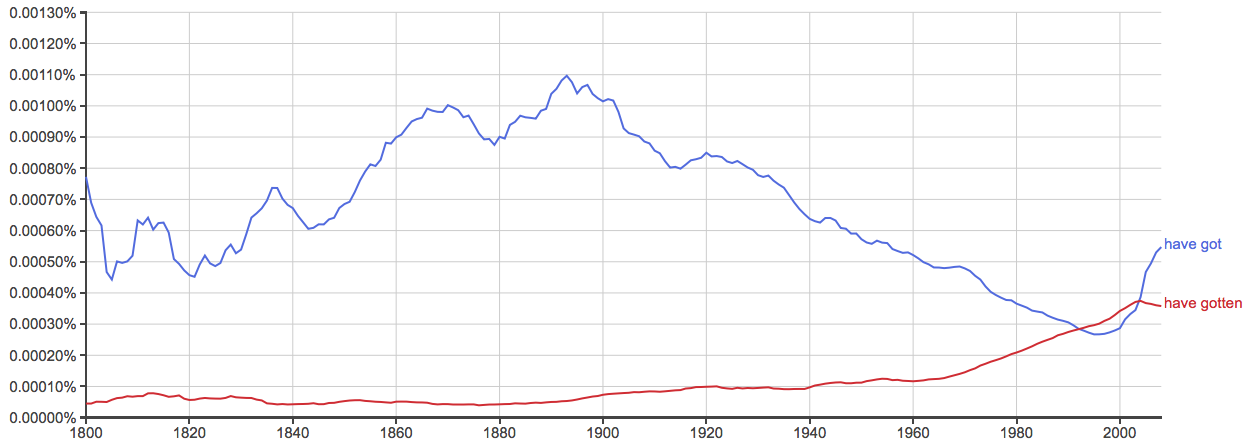
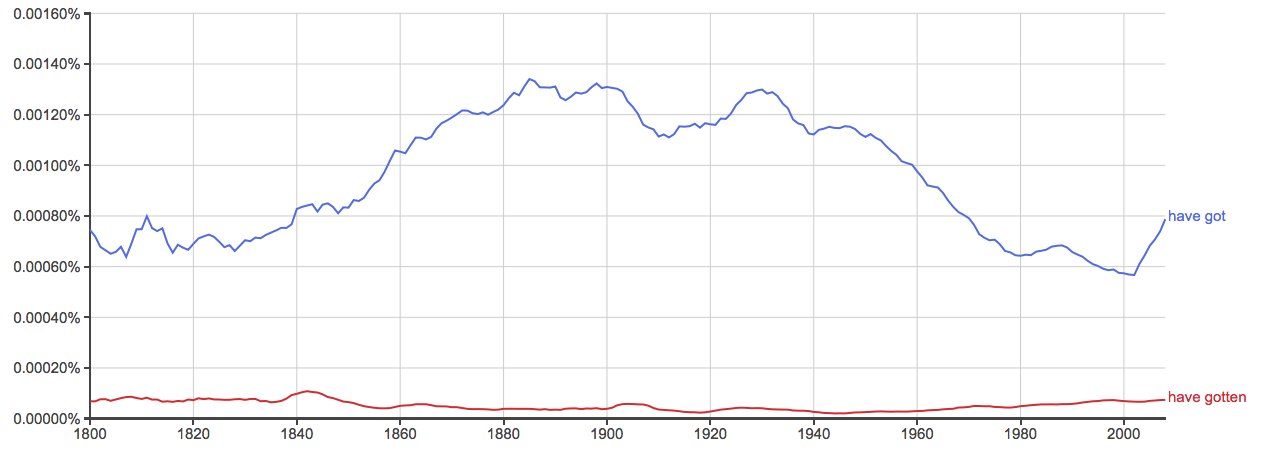

.jpg)
